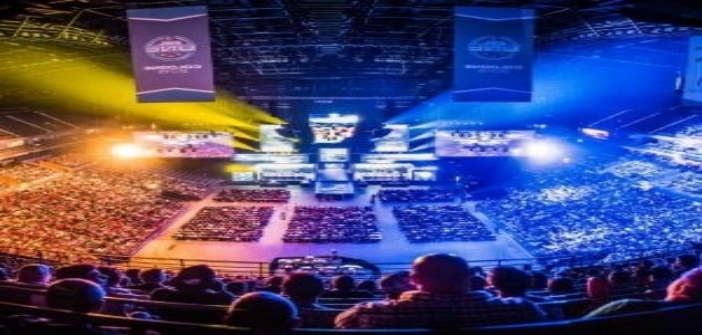At a time when many sports disciplines struggle to exist within a market dominated by giants like football, rugby, or tennis, a new entrant is making a place for itself by breaking all the codes.
Much more than just a trend, @Sport has arguments that the professionals in the Sports Business can no longer ignore, with more and more of them succumbing to the advantages of this emerging practice.
A discipline to henceforth reckon with
While @Sport divides public opinion as to whether it belongs within sports disciplines, sports business players have already made their decision. Indeed, it doesn’t really matter whether video game competitions are recognized as a full-fledged sport; the discipline and its community rely on codes and values that interest sports business players, including institutions, sponsors, media, and even professional clubs.
For over twenty years now, enthusiasts have been following the growth of @Sport, especially in Asia where its success no longer needs proving. In France, @Sport has been making more noise, particularly since 2014-2015. As a reminder, in 2016 UEFA already launched a virtual version of the Euro in partnership with the French startup @Sport World Gaming Federation.
Several factors explain this dynamic, beginning with the audience generated by electronic sports competitions. In 2015, during the final of the League of Legends (LoL) World Championship, @Sport recorded unprecedented numbers, as it not only filled the famous Mercedes-Benz Arena in Bayern Munich but also surpassed 36 million unique visitors on online broadcast platforms. Since then, the excitement around the game has not waned, with the 2017 finals even peaking at 80 million unique visitors.
Beyond its audiences that rival many sporting events around the world, @Sport has a very active online community that comments and shares numerous videos on social media, video platforms like YouTube and Dailymotion, or specialized sites such as Twitch. According to a Webedia group survey, over 7.5 million French people regularly follow @Sport. Internationally, it is estimated that by 2020, nearly 500 million fans will regularly follow @Sport.
An audience capable of rivaling some international sporting events, a committed and rapidly growing community in France, and a promising market internationally are just some of the assets that have allowed @Sport to carve a place in the Sports Business at a time when many agencies are continuing their strategy of digital transformation.
Sports Business professionals are taking control of the controllers
Like UEFA, many historical actors have embraced @Sport in recent years. In France, the Professional Football League has been organizing its virtual championship for two seasons now with the Orange E-Ligue 1. Meanwhile, many clubs have established their professional teams in football simulations and other games, like PSG’s involvement in League of Legends. Internationally, the NBA has also announced the creation of a virtual league where some of its franchises will compete in 2018.
On television, the majority of sports channels now dedicate part of their programming to video game competitions. The channel L’Équipe bet on the discipline in 2015 by broadcasting the E-Football League. Meanwhile, BeIN Sports offers a weekly program called beIN @Sport, while the Canal group launched the @Sport Club channel in addition to broadcasting a Counter-Strike competition on its C8 channel. Finally, SFR Sport is not far behind, as the Altice group channel also offers a dedicated weekly program with the Mag Esport.
This media visibility has not escaped the attention of sponsors. While giants in electronics and computing have always closely followed developments in the @Sport universe, traditional sports sponsors have now joined in. In fact, many brands have chosen to associate themselves with @Sport teams or competitions, like Orange, PMU, Winamax, and Adidas, which supplies jerseys to the French team Vitality. The latest entrant, EDF, has just included two League of Legends specialists in its Team ambassadors.
And in the future?
In 2016, the government officially created France @Sport, whose goal is to promote and supervise the future development of electronic sports by collaborating with various stakeholders in the discipline. Meanwhile, the IOC made headlines in October by indicating that @Sport could one day be considered a sports discipline by the Olympic movement. @Sport could thus enter the Olympic Games, but under certain conditions of structuring and respect for IOC values. Finally, the FDJ is also betting on @Sport by organizing an online betting system around video game competitions. Currently free of charge since gambling is not yet authorized around video games, the operator is also betting on a rapidly growing discipline. Indeed, @Sport should represent a market worth more than 4 billion euros by 2020.
Michael Tapiro, founding president of SMS (Sport Management School)


